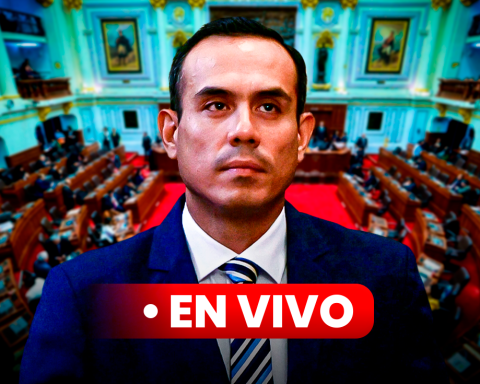May 1, 2023, 4:05 AM
May 1, 2023, 4:05 AM
By César Dockweiler, economist
At the time of the Industrial Revolution, when factories were multiplying based on technological advances and a 14- and 18-hour-a-day workforce, an “anarchist” movement of workers arose in Chicago, proposing the “crazy idea” of working only 8 hours a day, a demand that led to a general strike of several days, clashes with the police and businessmen, several jailed, dead and injured, but in the end the goal was achieved and served as an international precedent.
In honor of the Chicago workers who were bloodily repressed at the McCormick factory in Chicago, on May 1, 1886, International Worker’s Day was established, which also in Bolivia is a non-working day in which the government formalizes some “gifts” for workers such as the salary increase retroactive to January.
In those times, in Chicago, businessmen, the Police, the Justice and the Government (the powerful) walked hand in hand against the workers and journalists who risked their skins to publish the truth.
The conquest of Chicago was achieved with the blood, courage, and unity of the workers who demanded what was fair, better working conditions, the result of which was an increase in the wealth of the businessmen, but in exchange they gave crumbs abusing the power of their wallets and their political influences, of course, also with the complicity of corrupt jurists.
This year, the government agreed with the Central Obrera Boliviana a salary increase of 3% for the basic salary and 5% for the national minimum wage. This “conquest” for its small amount is not satisfactory for workers who receive a salary, but neither is it for micro, medium and large businessmen who do not know how they will generate more resources to comply with this obligation; Surely it is also a problem for the Ministry of Economy, which must further reduce the meager treasury resources for investment and thus avoid further inflating the national fiscal deficit to attend to the increase in public officials; On the other hand, there are the “informals” who are the majority in the labor spectrum (more than 80%), who do not care much about the percentage increase because they do not pay taxes and social benefits for their workers who resign their rights in exchange for maintain their very poor income exceeding 8 working hours.
Bolivia will spend May 1 with a small salary increase for a minority of the population, with the grief of 4,500 Fassil employees who lost their jobs due to the recent intervention of their bank, with protests from some social sectors mobilized rejecting laws that they want to approve the government, with the sadness of importers and savers who can’t find dollars anywhere, with the indifference of thousands of informal workers for whom that day is like any other, and with a friendly COB march led by government-affiliated trade unionists.
On this worker’s day, we must commit ourselves to continue fighting for a future in which every working person has the same opportunities and rights. We must work together to create decent and well-paid jobs, to promote gender equality in the workplace and to ensure that everyone has access to social protection and job security. Let’s make, on this day, the commitment to work together to build a Bolivia in which every working person has the freedom to pursue their dreams and reach their maximum potential.















